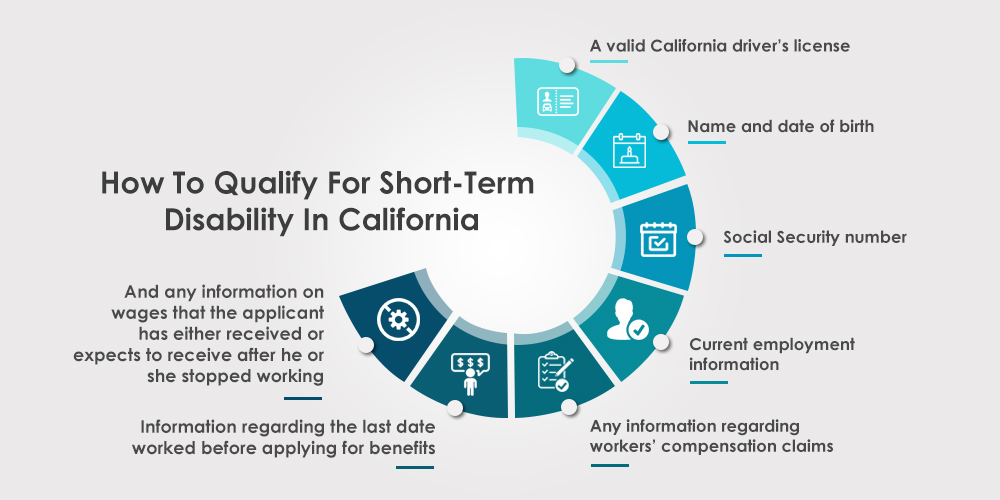California’s Employment Development Department oversees a State Disability Insurance (SDI) program for residents of California. This program exists to provide short-term disability benefits to individuals who are unable to work for any of the following reasons:
- A non-work related injury or illness;
- A physical or mental disability that prevents and hinders the individual’s ability to perform his or her customary work;
- Pregnancy;
- An individual who must take paid family leave to care for a sick family member or a newborn baby.
The SDI program provides wage replacement benefits to California workers who are eligible. To be considered eligible, in addition to having one of the foregoing qualifying conditions, an individual must have made contributions to the SDI program through payroll deductions. Eligible individuals can ultimately receive about 60 to 70% of the wages they earned in the 5 to 18 months before becoming disabled. These benefits can be received for a maximum amount of one year.

In order to apply for benefits, in addition to having paid money into the system and having a qualifying condition, an applicant must provide required information including:
- A valid California driver’s license;
- Name and date of birth;
- Social Security number;
- Current employment information;
- Any information regarding workers’ compensation claims;
- Information regarding the last date worked before applying for benefits;
- And any information on wages that the applicant has either received or expects to receive after he or she stopped working.
California’s SDI program is an excellent stopgap measure for individuals with disabling conditions who need financial support, as Social Security benefits typically are not available before the one-year time limit expires. After one year, however, disabled individuals may continue to need ongoing benefits.
What Are My Options After SDI Expires?
After short-term disability has run out in California, an individual who needs ongoing financial assistance can and should apply for Social Security disability benefits if the disability is expected to continue. To make a case for an award of Social Security disability benefits an individual will need to provide evidence proving the following factors:
- A qualifying medical condition: To determine whether a medical condition qualifies for an award of benefits, the SSA will often consult its “Blue Book” of medical impairments. This is a guide that includes various conditions and the symptoms of those conditions. If an individual has a condition listed in the Blue Book and can prove it by presenting credible medical evidence, that will increase the chances of approval. If a condition is not listed, however, this does not necessarily mean that an individual will not be approved. It simply means that additional medical evidence and proof of symptoms and their disabling effect may be needed.
- The condition is “disabling”: In the eyes of the Social Security Administration, “disabling” means that the condition has or is expected to last for at least 12 consecutive calendar months. There are some limited exceptions (as in the case of blindness), but generally, this is the rule. An individual must be rendered unable to engage in “substantial gainful activity” in order to be approved.
- An individual is either “insured” or has income and resources below a certain level: Applicants who are seeking Social Security Disability Insurance (SSDI) benefits must be able to prove that they are “insured” before being able to do so. This essentially means that the applicant worked a qualifying job for a sufficient amount of time through which he or she paid into the Social Security system. If an individual did not do so but has income or resources below a certain level, he or she may qualify for Supplemental Security Income (SSI) benefits. Consulting with an attorney as to which type of benefits you may qualify for is always advised.
While the foregoing information is intended to be helpful, it is ultimately no substitute for the advice of a knowledgeable and experienced attorney. An attorney who knows and understands the law can listen to your personal story and advise you as to your unique circumstances. At Sackett and Associates, we’re here for you.
Call Sackett and Associates Today
Being disabled can be an overwhelming experience, to say the least. You should be able to focus on seeking the treatment you need for your condition and enjoying life with those you love – not worrying about stressful legal matters. Instead, you can leave your claim in the hands of the talented and experienced legal team at Sackett and Associates.
When you do, you can rest assured that we will pursue the best legal strategies on your behalf to maximize your chances of receiving the disability benefits you need and deserve. Your initial consultation is totally free, and there’s no day like today to take the first step toward a better chapter ahead. Give us a call today. We look forward to speaking with you soon.


One Reply to “How To Qualify For Short-Term Disability In California”
I was injured at work my lower back and now my workman’s Comp has run out and I am waiting to see if I am going to have surgery